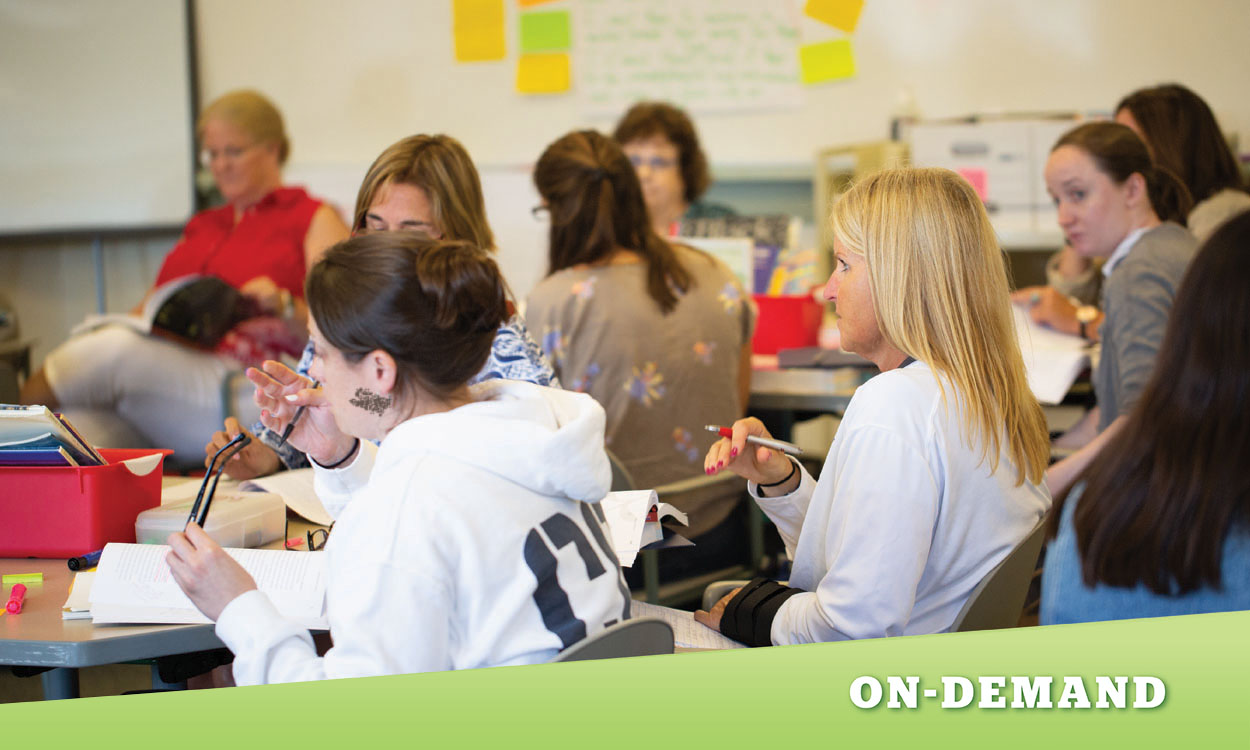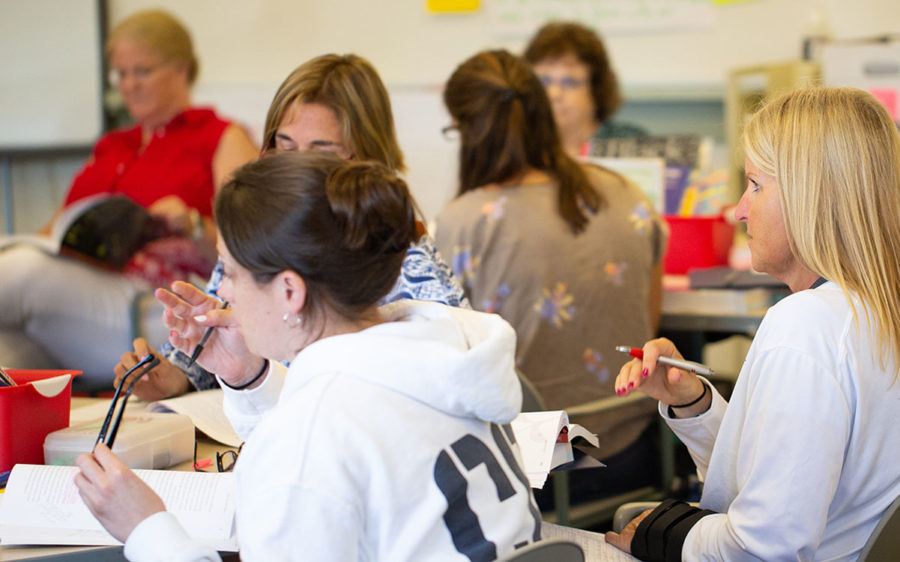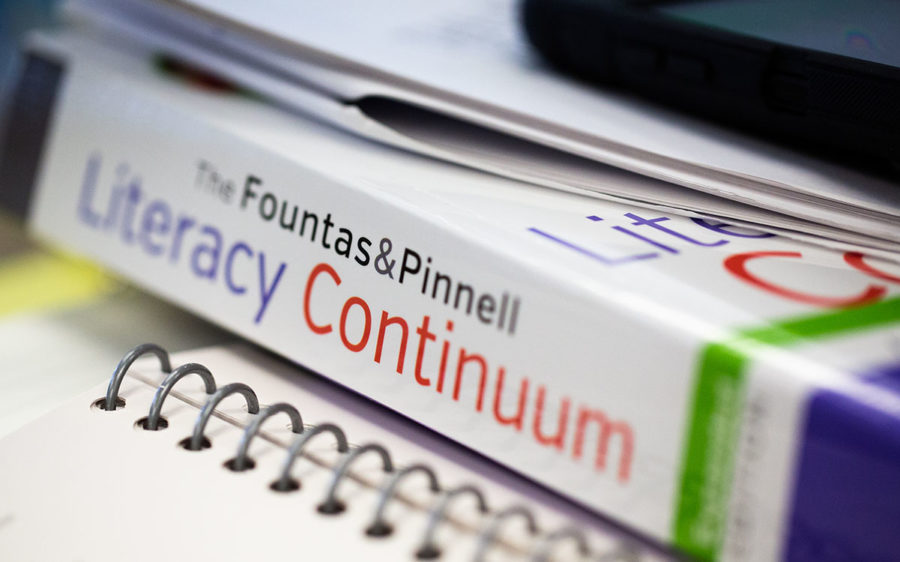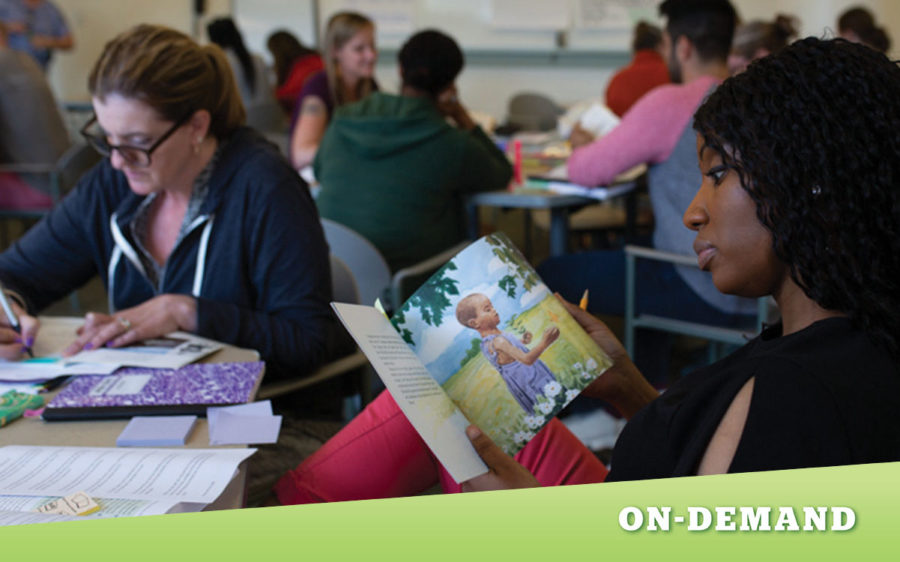
- This event has passed.
January 21, 2020 @ 9:00 am – March 15, 2020 @ 3:30 pm
Word Study: Teaching Phonics, Vocabulary, and Spelling in Grades 3-8

Learn how to develop your students’ word-solving competencies and expand your knowledge of phonology, morphology, and orthography.
In this 8-week online graduate course for teachers, learn the importance of systematic instruction in vocabulary, spelling, and word analysis skills in the intermediate grades and middle school.
- Classroom Teachers, Interventionists, & Specialists
- Literacy Coaches & Teacher Leaders
- Course Number: EEDUC 6049.80
- Fees are subject to change
Word study provides students with an opportunity to engage in inquiry and actively work with words to understand how they work. In word study, students expand their knowledge in the areas of word learning and become more flexible and automatic when reading and writing increasingly more complex words.
In this course, you will learn how to assess, plan, and teach effective word study lessons, as well as connect students’ work in this part instructional context to opportunities across the literacy day.
Examine the teaching of phonics, spelling, and vocabulary in an authentic literacy classroom for grades 3-8. Investigate essential categories of learning. Analyze teaching and engage in inquiry to deepen your understanding of how words work. Come away with a set of instructional practices for effective teaching across a range of students.
By enrolling in an online graduate course, you have the flexibility to learn at your own pace with the support of a virtual community and have access to a variety of educational resources and materials at your convenience.
Course Outcomes
- Understand the relationship between phonics, spelling, and vocabulary, and how students develop competencies over time
- Explore categories of word learning: letter/sound relationships, spelling patterns, high frequency words, word meaning/vocabulary, word structure, and word-solving actions
- Demonstrate knowledge of foundational language systems: phonology, morphology, and orthography
- Examine the importance of word consciousness and how to nurture in students an awareness, interest, and curiosity of words
- Build knowledge of how to provide explicit inquiry-based instruction that helps all students, including those who are learning the English language; develop essential understandings of how words work
- Differentiate word study teaching to address varying strengths and needs and assure the success of English learners and students who may need additional support
Required Texts
You are responsible for purchasing/having access to the following professional texts for this course:
- Fountas, I.C. & Pinnell, G.S. (2017). The Fountas & Pinnell comprehensive phonics, spelling, and word study guide. Portsmouth, NH: Heinemann Publishing.
- Fountas, I.C. & Pinnell, G.S. (2017). The Fountas & Pinnell literacy continuum, expanded edition: A tool for assessment, planning, and teaching. Portsmouth, NH: Heinemann Publishing.
- Rasinski, T., Padak, N., Newton, R.M., & Newton, E. (2008). Greek & Latin roots: Keys to building vocabulary. Huntington Beach, CA: Shell Education.
Required Readings
You are responsible for purchasing/having access to the following readings for this course:
- Joshi, R. M., Treiman, R., Carreker, S., & Moats, L. C. (2009). How words cast their spell: Spelling is an integral part of learning the language, not a matter of memorization. American Educator, Winter 2008-2009, 6-16 & 42-43.
- Fountas, I. C. & Pinnell, G. S. (2020). Twelve Compelling Principles from the Research on Effective Phonics Instruction. Portsmouth, NH: Heinemann.
Recommended Texts and Readings:
- Beck, I. L., McKeown, M. G., & Kucan, L. (2013). Bringing words to life: Robust vocabulary instruction. 2nd. Ed. New York, NY: The Guilford Press.
- Cobb, C. & Blachowicz, C. (2014). No more “look up the list” vocabulary instruction. Portsmouth, NH: Heinemann.
- Crosson, A. C. & Lesaux, N. K. (2013). Connectives: Fitting another piece of the vocabulary instruction puzzle. The Reading Teacher, 67(3), 193-200.
- Fountas, I.C. & Pinnell, G.S. (1998). Word matters: Teaching phonics and spelling in the reading/writing classroom. Portsmouth, NH: Heinemann.
- Fountas, I.C. & Pinnell, G.S. (2009). Words matter: Building power in vocabulary. In When readers struggle: Teaching that works (pp. 152-173). Portsmouth, NH: Heinemann.
- Graves, M. F., August, D., & Martinez-Mancilla, J. (2013). Teaching vocabulary to English language learners. New York, NY: Teachers College Press.
- Rasinski, T., Padak, N., Newton, R. M., & Newton, E. (2011). The Latin-Greek connection: Building vocabulary through morphological study. The Reading Teacher, 65 (2), 133-141.
- Templeton, S. (2002). Effective spelling instruction in the middle grades: It’s a lot more than memorization. Voices From the Middle, 9(3), 8-14.
This option must be taken for 3 graduate credits. To participate in this course for graduate credit, you’ll need to be teaching in a classroom in grades 3–8 or have access to a small group of students you can work with over time.
Take the course individually or as an elective in our 18-credit Online Graduate Certificate in Developing Literacy Expertise Through Responsive Classroom Teaching.
Interested in professional learning at your school or district? Schedule a meeting with one of our faculty trainers.
“The instructor was full of knowledge and asked questions that lifted our thinking and learning. She helped to make the theory practical.”
Literacy Coach (Anonymous)



